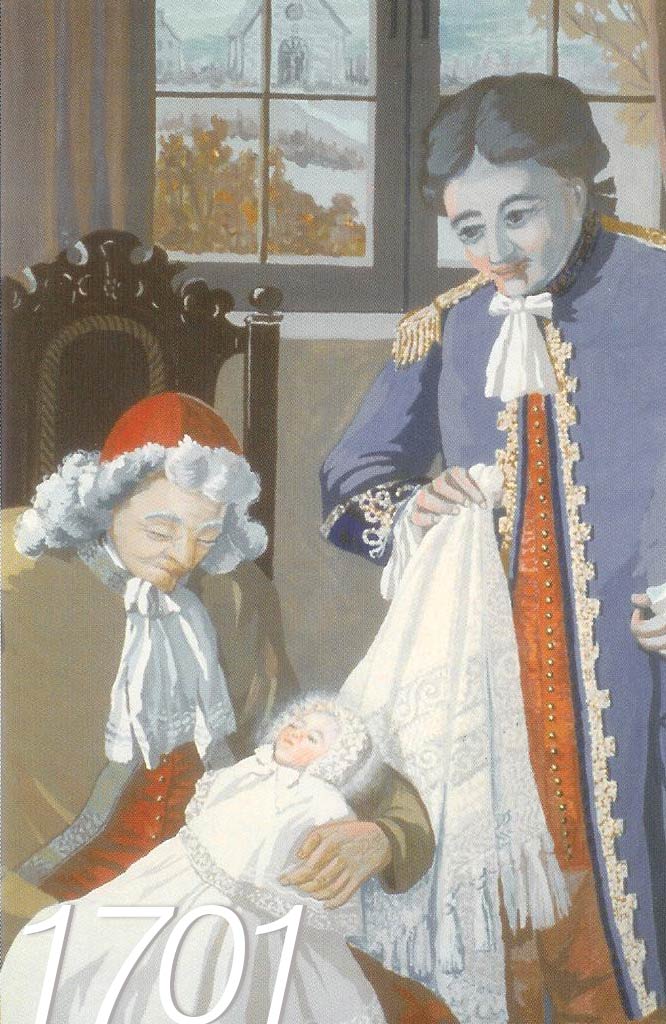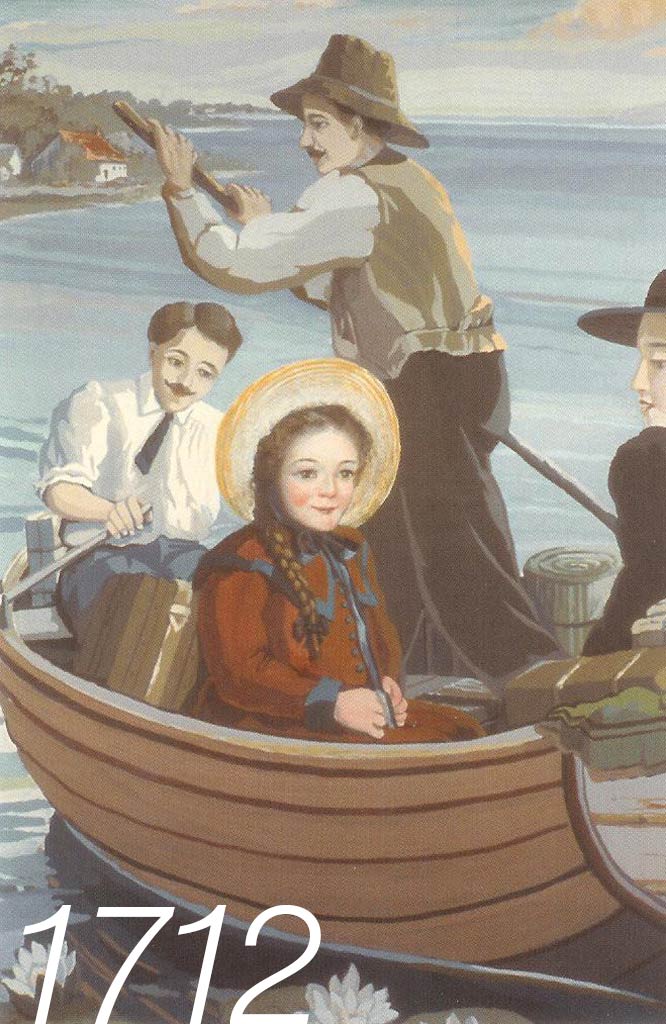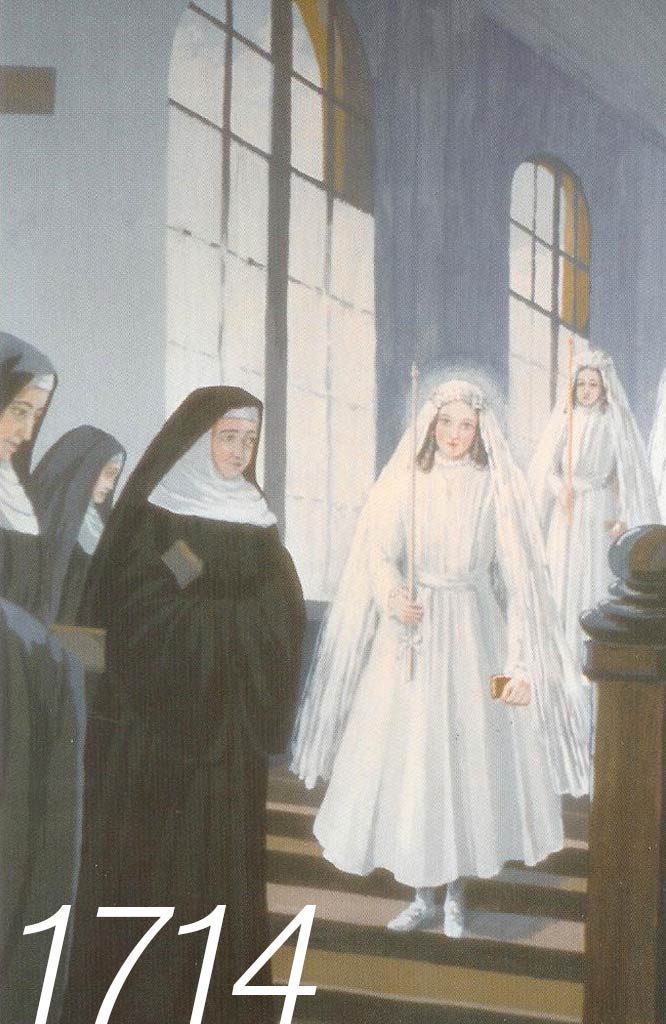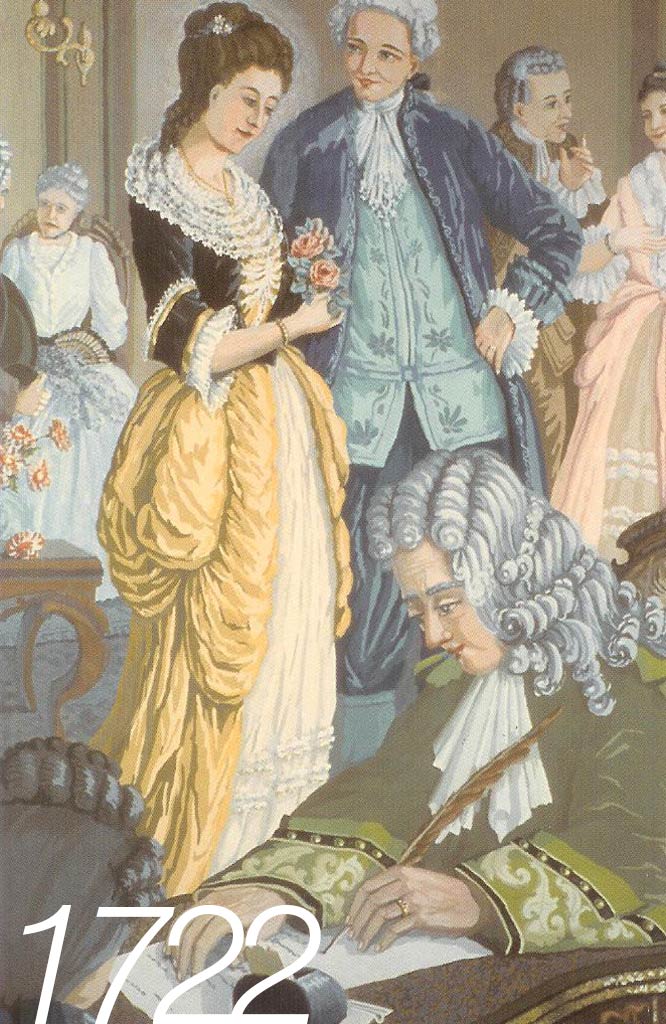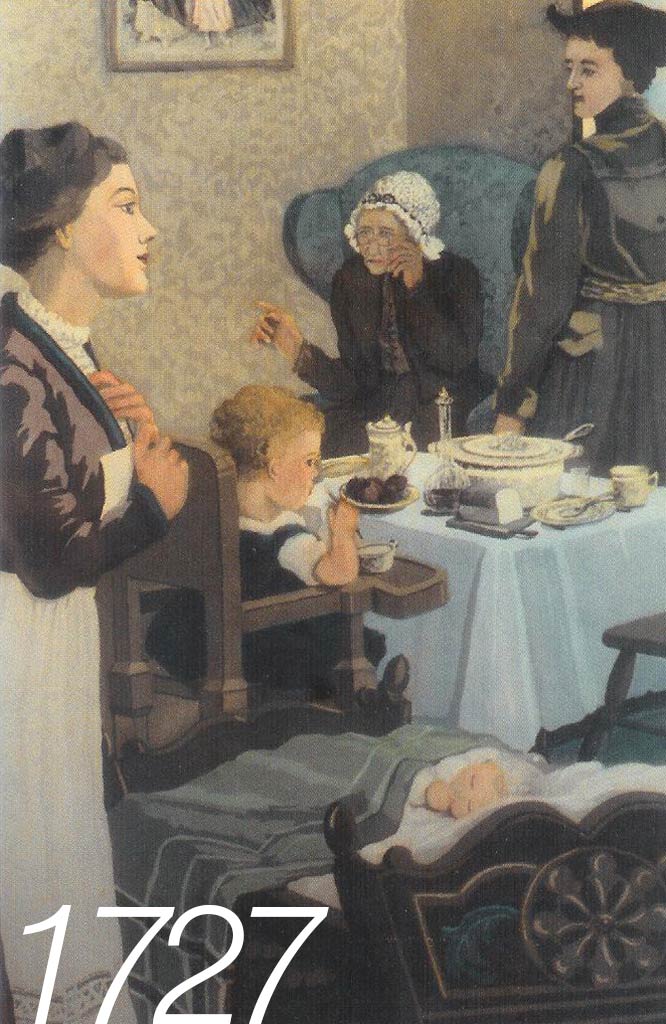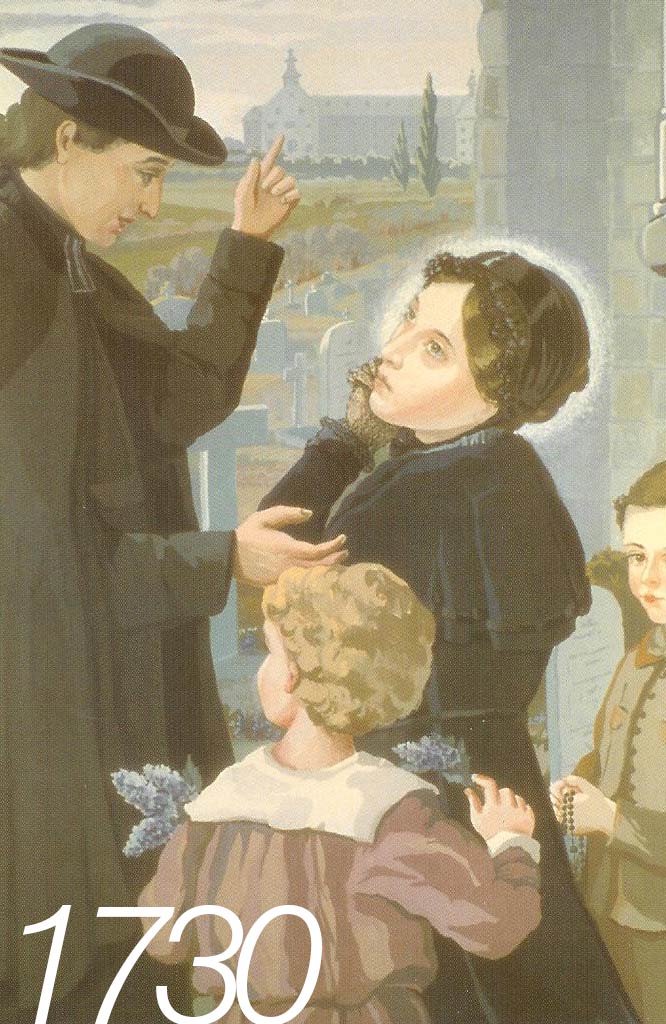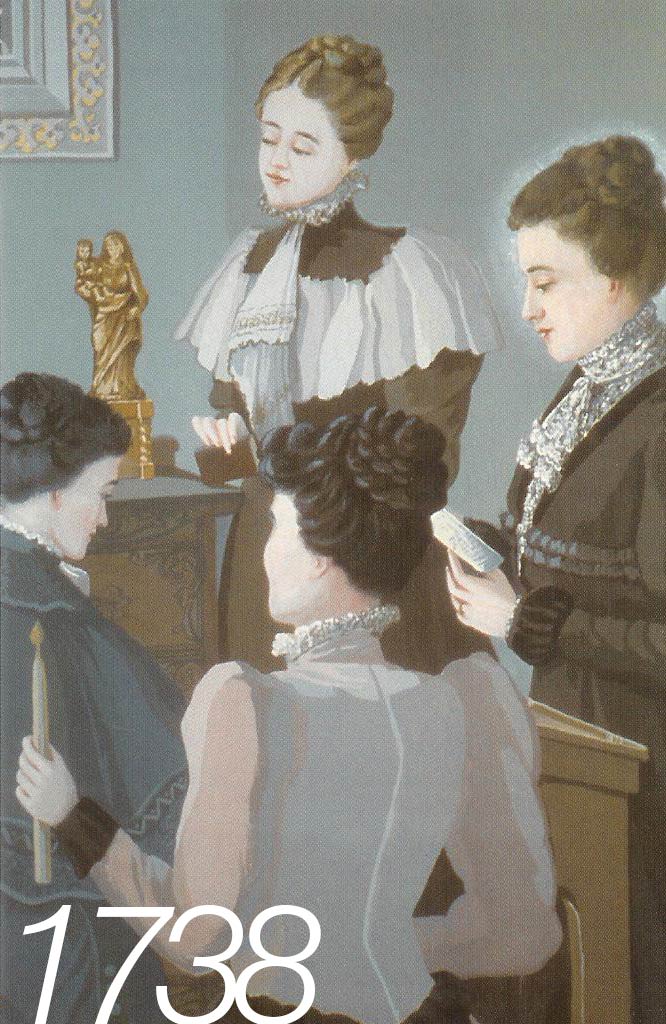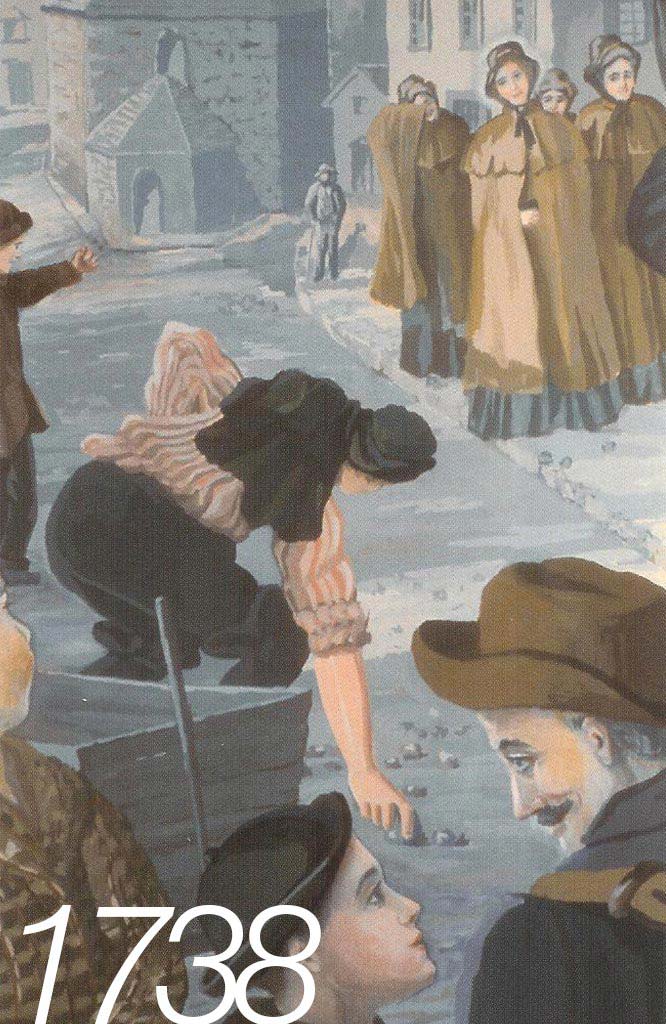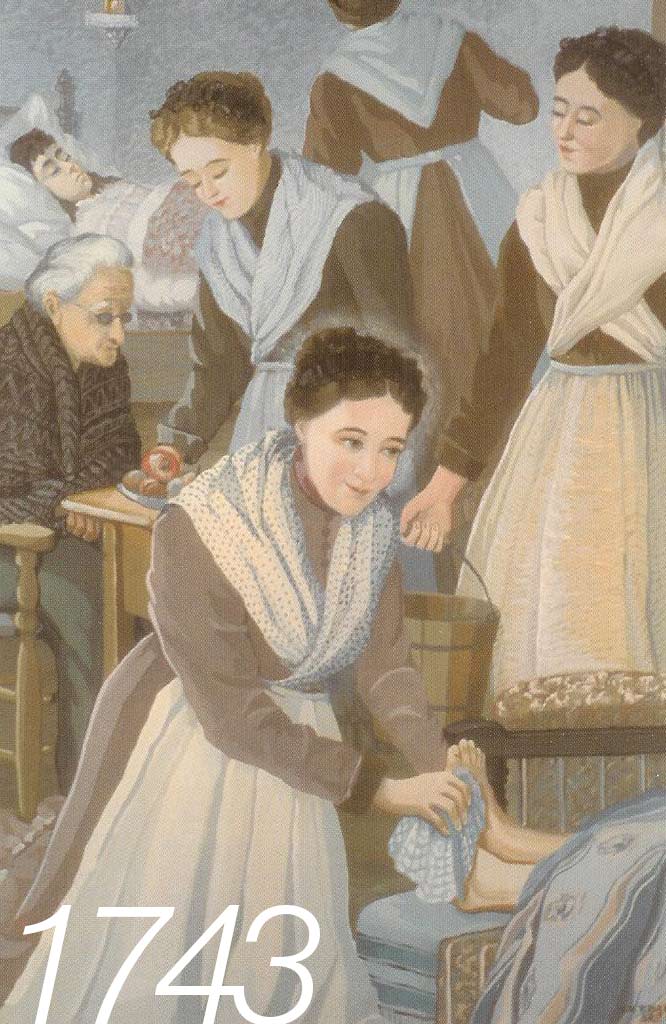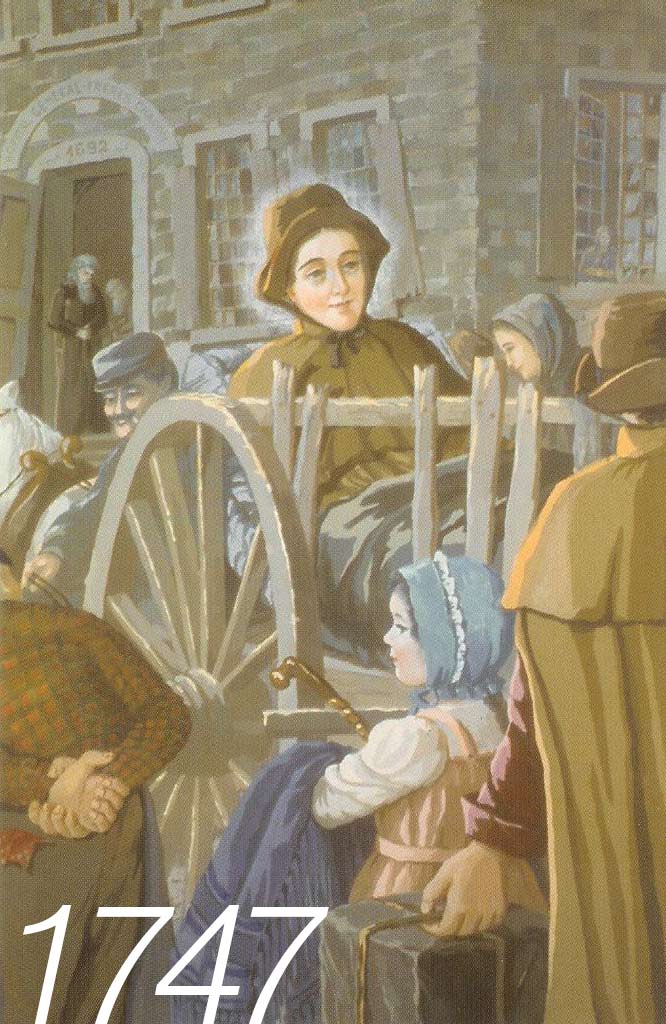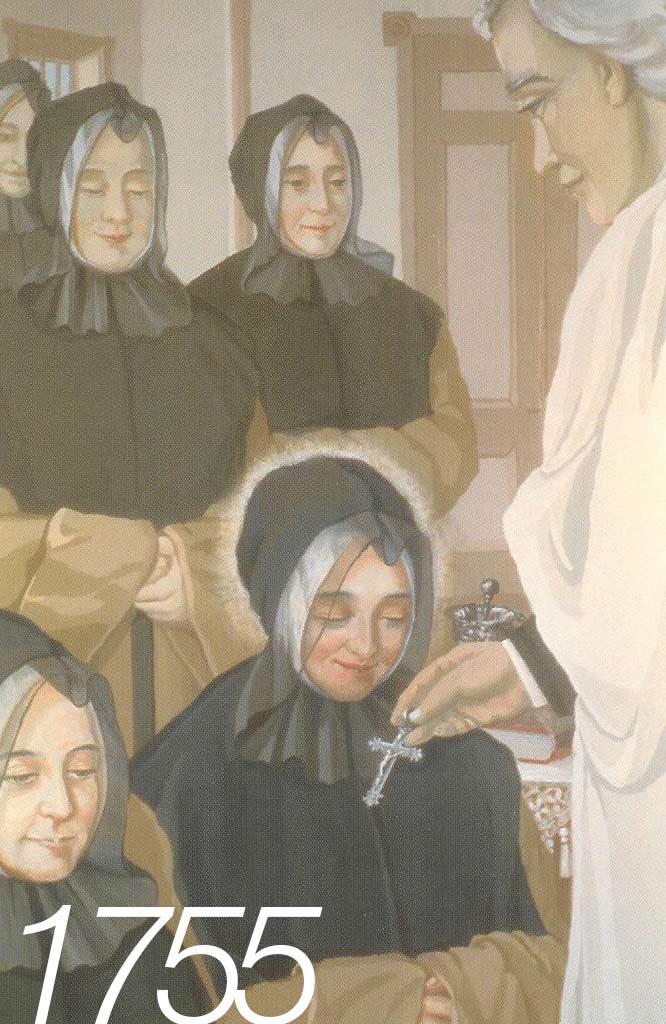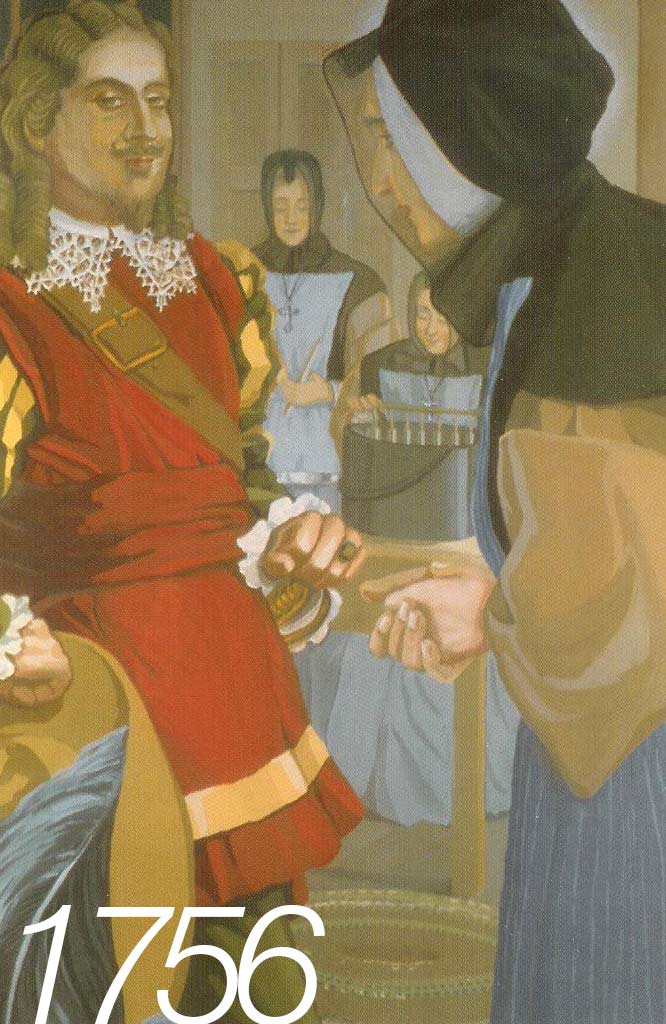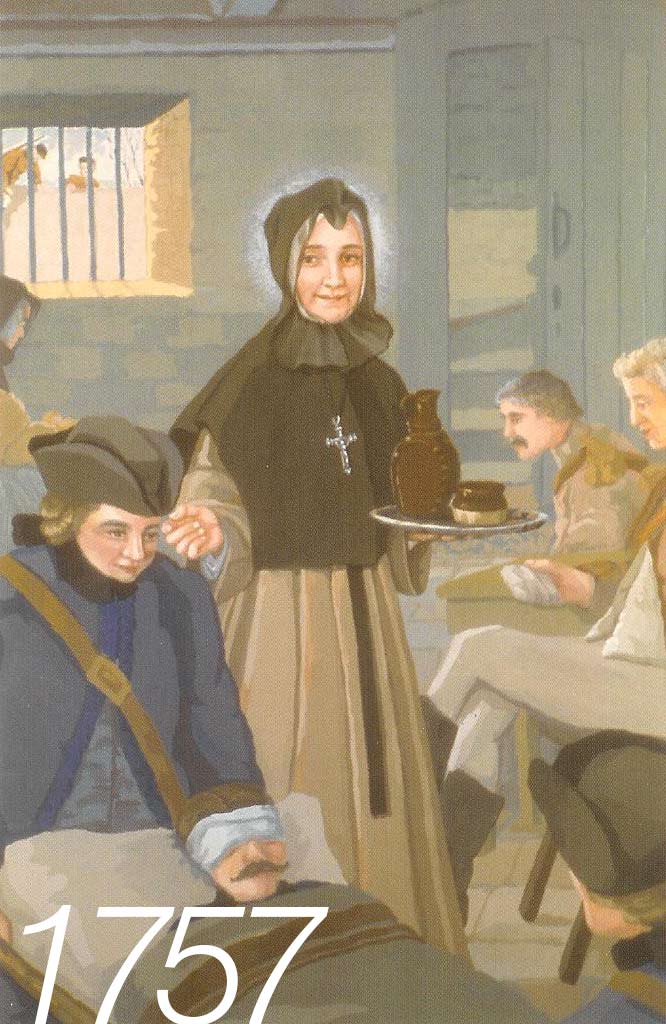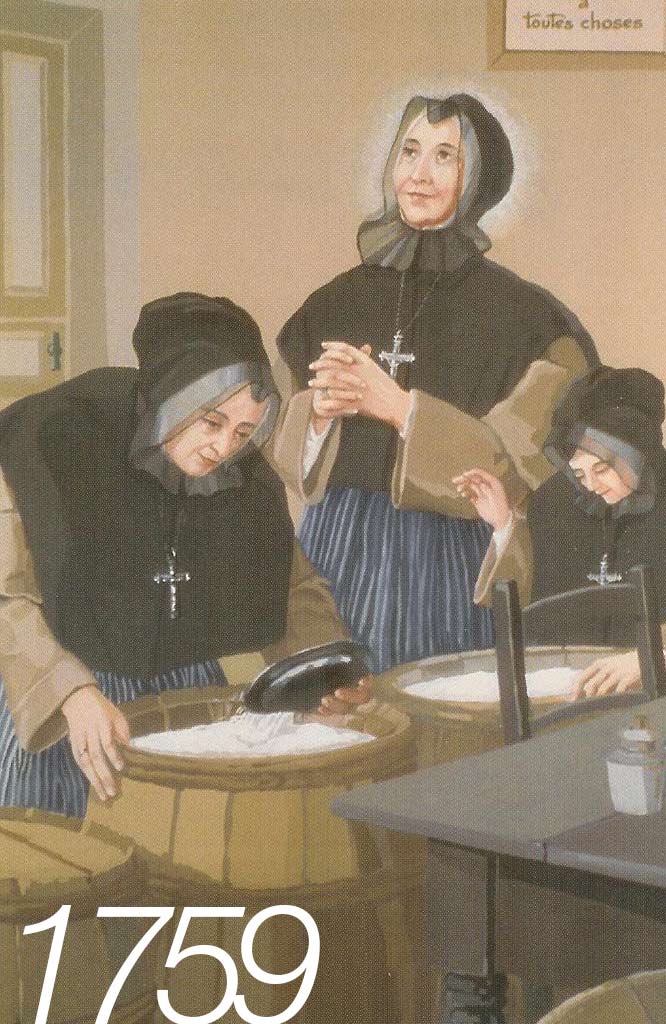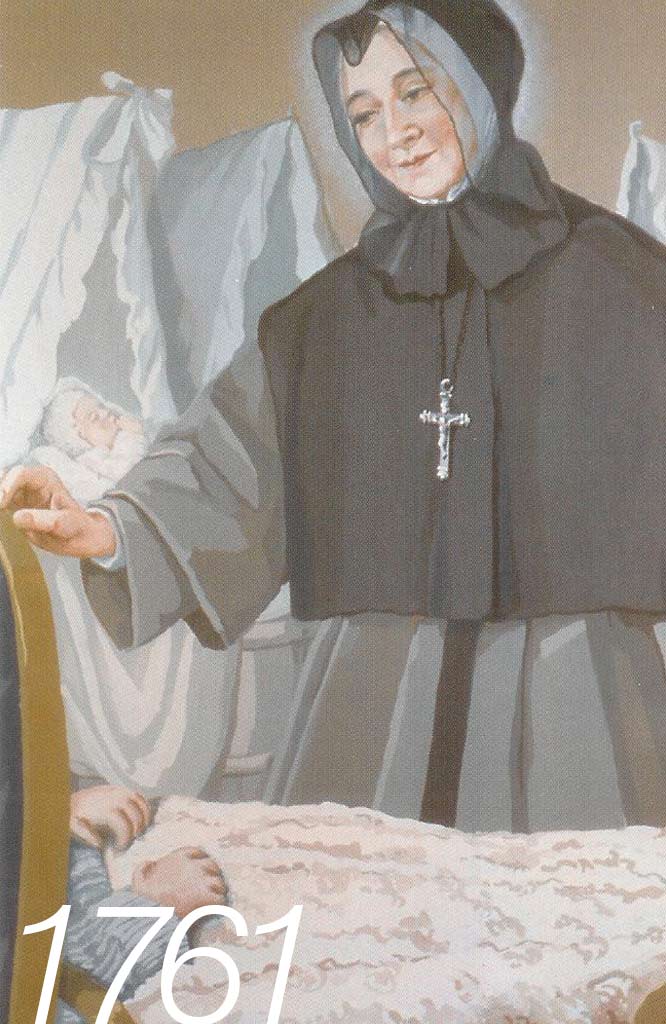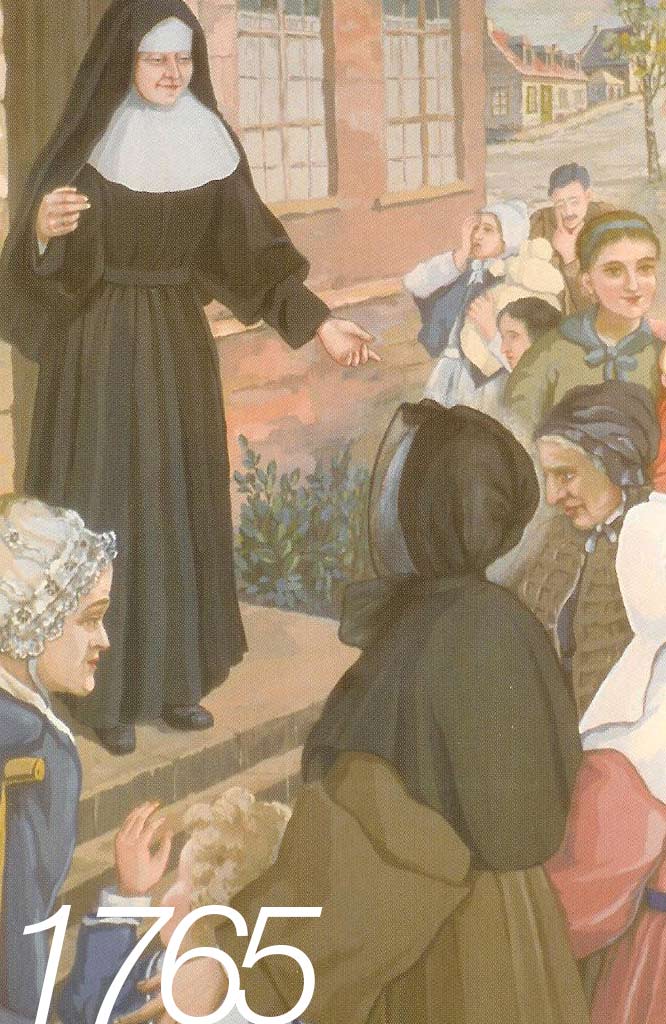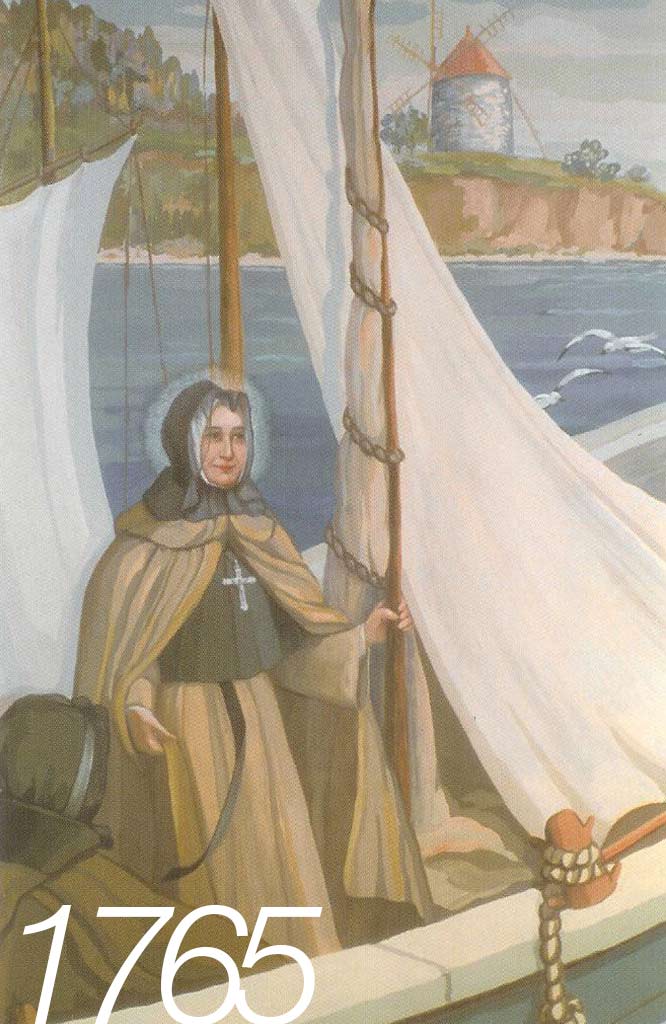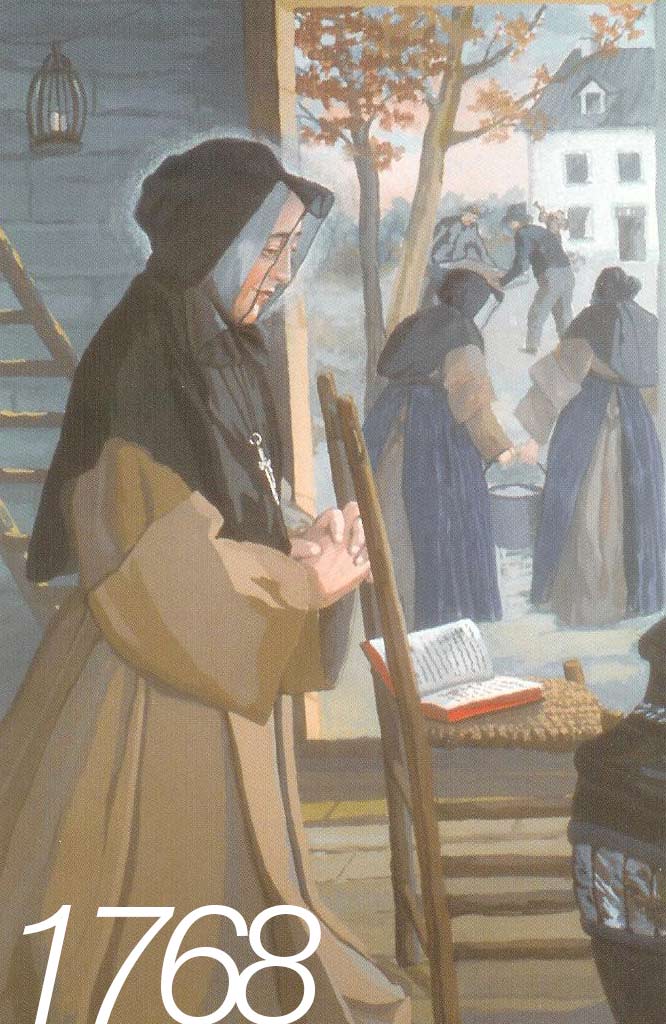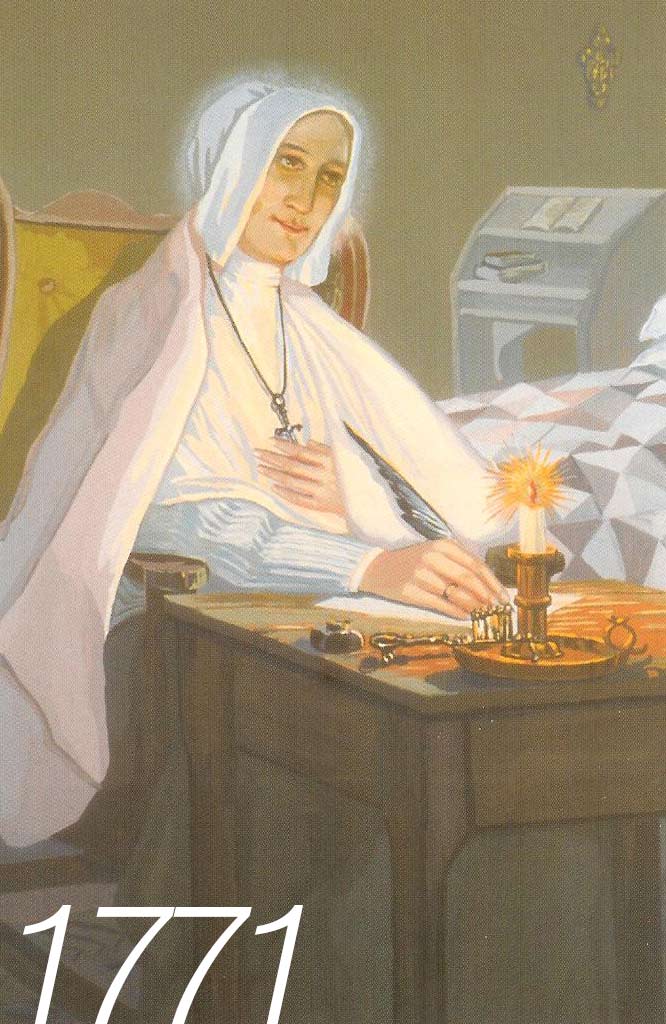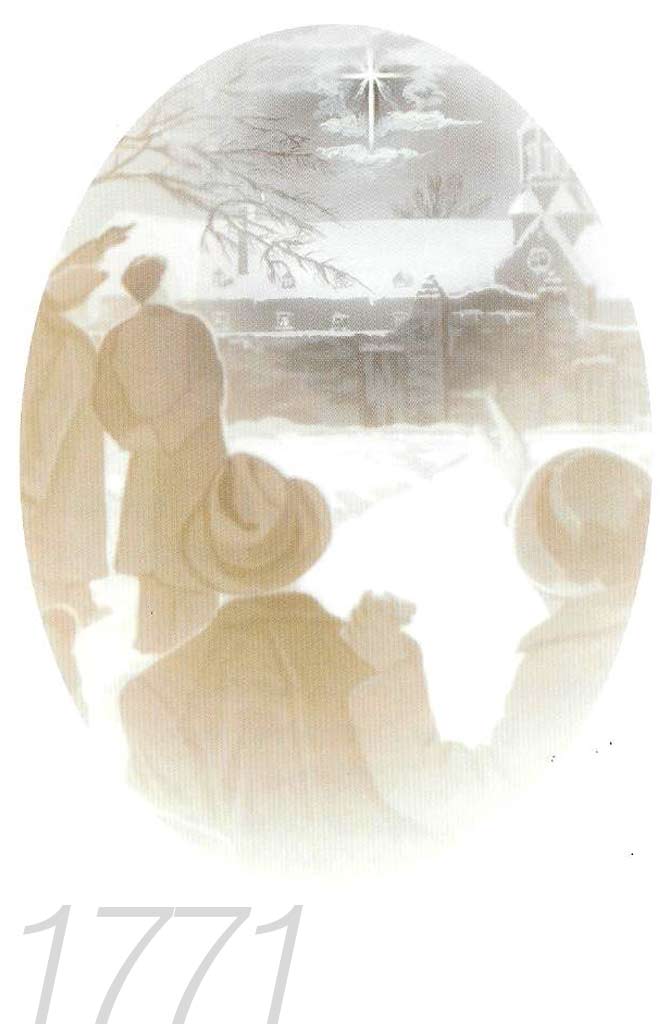Discover all stages of Marguerite d’Youville’s life in pictures
Marie-Marguerite Bourgeois was born on October 15, 1701 at Varennes, Quebec, the first child of Christopher Dufrost de Lajemmerais and Marie-Renée Gaultier de Varennes. The following day, she was baptized in the parish church of St. Anne. Her father proudly placed her on the knees of Pierre Boucher, her maternal great-grandfather, to receive the traditional blessing.
The indifference and long absences of her husband and the bad temper of her mother-in-law who lived with them, helped to mold Marguerite’s heart into one of unselfish fidelity that never failed despite all obstacles. She was practically alone to educate and provide for her children, four of whom died in infancy.
Having become a widow at the age of 28, Madame d’Youville took care of her two sons while her heart remained open to the grace of God. Her spiritual director, Father du Lescoat, PSS, encouraged her with these words: “Be comforted, my child, God destines you for a great work, you will raise up a house fallen in ruins.”
On June 15, 1755, Most Reverend de Pontbriand, Bishop of Quebec, approved the new institute and on August 25, Marguerite d’Youville and eleven companions clothed themselves in a grey dress and black headdress, chosen as their distinctive habit, Father Louis Normant, PSS, their spiritual father, gave each one a silver cross.
Marguerite d’Youville traveled by rowboat on Lake St. Louis to visit the Seigniory of Chateauguay. Despite the losses sustained in the fire of May 18, she acquired the property. A woman of faith, but also a good business woman, she planned to make St. Bernard Island a source of revenue for the poor and a place of rest for her sisters.

